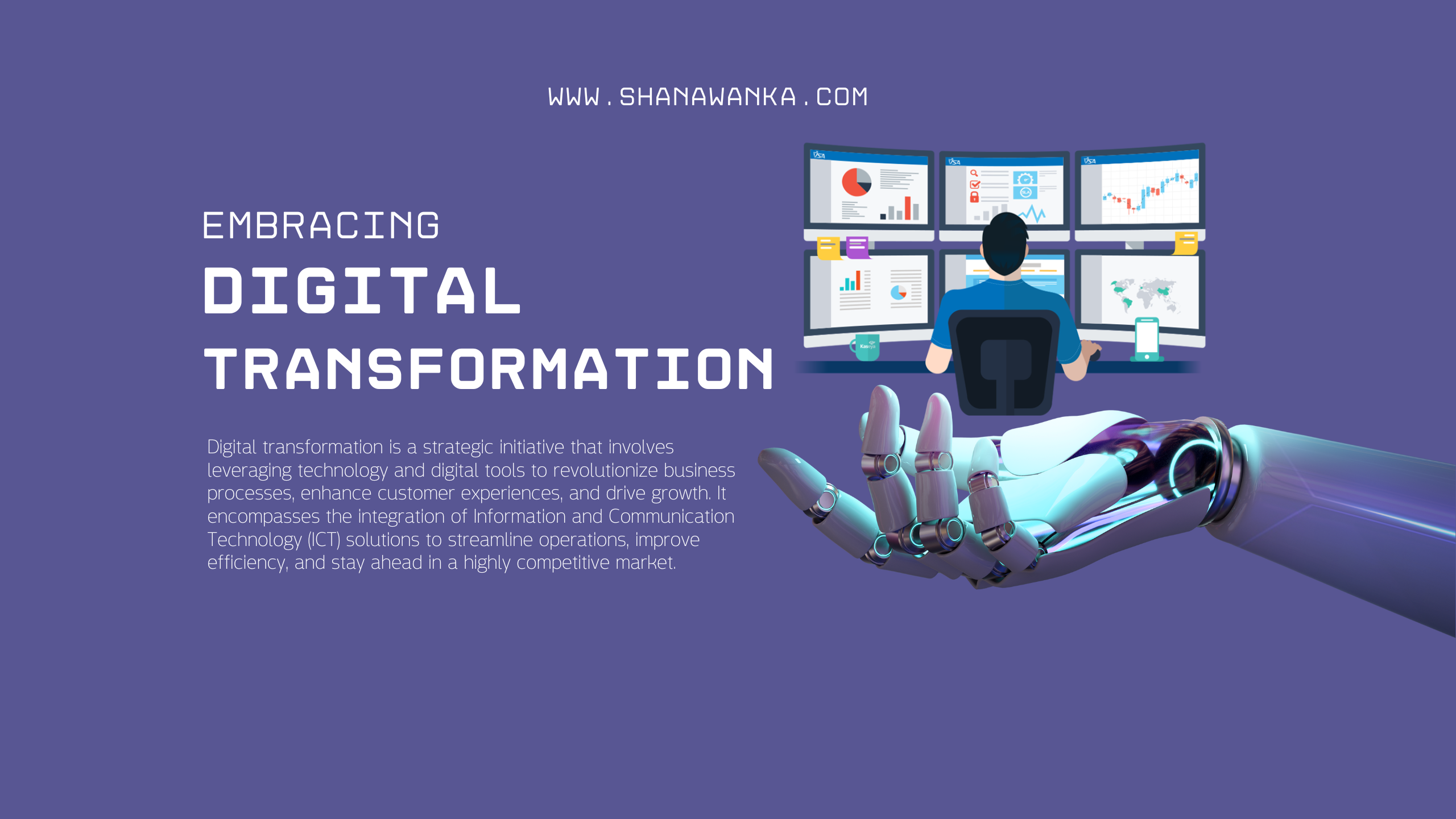In today’s rapidly evolving digital landscape, organizations are compelled to adapt and leverage technology to stay competitive. The integration of Information and Communication Technology (ICT) solutions has become essential for businesses across all industries, enabling them to enhance productivity, streamline operations, and unlock new opportunities. In this article, we will explore the significance of ICT in driving digital transformation and how it can revolutionize business practices.
- Enabling Seamless Connectivity: ICT solutions provide the foundation for seamless connectivity, fostering effective communication and collaboration within and beyond organizational boundaries. Cloud-based platforms, video conferencing tools, and enterprise messaging systems facilitate real-time interactions, empowering teams to work together irrespective of their geographical locations. Such connectivity promotes agile decision-making, accelerates project delivery, and cultivates a culture of innovation.
- Enhancing Operational Efficiency: By automating manual processes and optimizing workflows, ICT solutions help organizations achieve higher operational efficiency. Robotic Process Automation (RPA) streamlines repetitive tasks, reducing errors and improving accuracy. Enterprise Resource Planning (ERP) systems integrate various business functions, centralizing data and enabling efficient resource allocation. Additionally, advanced analytics and data-driven insights empower organizations to make informed decisions, identify bottlenecks, and implement strategies for continuous improvement.
- Empowering Remote Workforce: The COVID-19 pandemic has significantly accelerated the adoption of remote work models, making ICT solutions more crucial than ever. Cloud computing and virtual desktop infrastructure enable employees to access work-related data and applications securely from any location. Collaboration tools, project management software, and task management platforms foster productivity and ensure effective coordination among remote teams. ICT solutions not only maintain business continuity but also enhance employee satisfaction, work-life balance, and talent retention.
- Leveraging Emerging Technologies: ICT solutions are at the forefront of leveraging emerging technologies, offering organizations a competitive edge. Artificial Intelligence (AI) and Machine Learning (ML) algorithms enable predictive analytics, enabling businesses to anticipate customer behavior, optimize supply chains, and personalize user experiences. Internet of Things (IoT) devices and sensors connect physical assets, enabling real-time monitoring, preventive maintenance, and efficient resource utilization. Blockchain technology ensures data integrity, transparency, and security in transactions, benefiting industries such as finance, healthcare, and supply chain management.
- Ensuring Cybersecurity: As organizations embrace digital transformation, safeguarding sensitive data and ensuring cybersecurity become paramount. ICT solutions encompass robust security measures such as firewalls, encryption, multi-factor authentication, and intrusion detection systems. Regular security audits, employee awareness programs, and incident response plans are crucial for mitigating risks and protecting critical assets. Collaboration with cybersecurity experts and staying updated with evolving threats is essential for maintaining a robust security posture.
Conclusion: In an era characterized by rapid technological advancements, organizations that harness the power of ICT solutions stand to gain a competitive advantage. By embracing digital transformation and integrating ICT into their operations, businesses can unlock new opportunities, optimize efficiency, and meet the evolving needs of their customers. The journey towards a digitally empowered future begins with a strategic vision, a culture of innovation, and the willingness to adapt to the changing landscape. Embrace ICT, and unlock the true potential of your organization in the digital age.

Leave a Reply